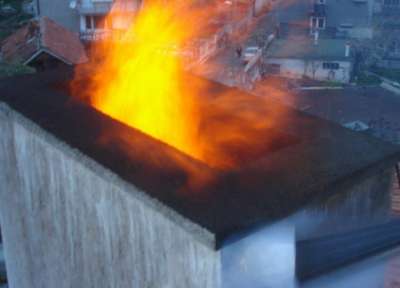Educating the public on basic CPR techniques and incorporating CPR training into school curriculums could be life-saving
Published: Tue 28 May 2024, 11:13 AM
Last updated: Tue 28 May 2024, 10:28 PM
The sudden death of a Canadian billionaire who recently died in Dubai due to suspected cardiac arrest after a workout prompted UAE doctors to warn of potentially fatal consequences when individuals with undiagnosed heart conditions engage in vigorous physical activities.
Often times, doctors noted, “heart conditions that are not diagnosed can cause a seemingly healthy person to die during or after a physical activity, including intense workout or competitive sport.”
The Canadian billionaire was 60 but just two years ago, in January 2022, a former British footballer – who was described by friends and colleagues as “so fit and active” – died while playing football in Dubai. He was only 35.
Stay up to date with the latest news. Follow KT on WhatsApp Channels.
Speaking to Khaleej Times Dr Rahul Chaudhary, consultant cardiology and specialist interventional cardiologist at International Modern Hospital Dubai, said: “There has been a concerning increase in the incidence of young people suddenly collapsing during sports or strenuous workouts. This phenomenon, often linked to sudden cardiac arrest, poses a significant health risk that requires immediate attention and intervention to prevent fatal outcomes.”
Anything in excess is bad
Several medical studies have shown that excessive exercise, exceeding two to three times the recommended 150 minutes per week, can increase the risk of heart disease and sudden cardiac arrest.
Dr Shaheen Ahmad, specialist interventional cardiology at Zulekha Hospital Dubai, strongly recommended to start gym activities in a gradual and phased manner, avoiding extreme strenuous activities from the beginning.
Dr Shaheen Ahmad
“Additionally, gym trainers should be trained in cardiopulmonary resuscitation manoeuvre and how to operate an automated external defibrillator (AED). Such equipment must be present in the gym to provide immediate assistance in case of emergencies. These precautions and measures can help ensure the safety of individuals during gym activities,” Dr Ahmad said.
Why heart abruptly stops
Explaining the phenomena that can be fatal, Dr Chaudhary said, “Sudden cardiac arrest occurs when the heart abruptly stops beating, leading to a decrease in blood supply to the brain and causing the patient to lose consciousness. If not promptly treated, this can result in death.
“The most common cause of sudden cardiac arrest is heart attack,” he added. This happens when the blood supply to the heart is suddenly blocked. Cardiac arrest is the disruption in the heart’s electrical activity, which can cause either an excessively rapid heart rate or a complete cessation of heartbeats. Both scenarios result in the brain being deprived of blood, leading to unconsciousness and potentially death.
Dr Rahul Chaudhary
Dr Chaudhary continued: “While heart attacks are the leading cause of sudden cardiac arrest, young athletes and those engaging in vigorous physical activity may have other underlying heart conditions. These include cardiomyopathies or any disorder that affects the heart muscle such as hypertrophic cardiomyopathy, or congenital syndromes that can trigger sudden cardiac arrest.”
Balanced physical activity
Both Dr Chaudhary and Dr Ahmad also recommend to have a balanced physical activity. Those over the age of 30 to 35 are advised to undergo regular health check-ups with testing of blood pressure, blood sugar, cholesterol levels, and other tests to detect and manage any risk factors at an early stage.
“It is unfortunate to hear about incidents where individuals suffer from sudden heart attacks during rigorous gym activities,” noted Dr Ahmad, adding: “To prevent such catastrophic events, individuals who are 40 years or older and plan to engage in intense gym activities must undergo risk factor evaluation beforehand.”
Risk factors such as uncontrolled diabetes, undiagnosed hypertension, hyperlipidemia (high cholesterol), smoking, obesity, and sedentary lifestyles can increase the likelihood of heart disease and sudden heart attacks.
“Those with such risk factors should consult with their doctors to control them before starting their gym activities,” he underscored.
Meanwhile, doctors noted, engaging in regular physical activities —150 minutes of moderate exercise or 75 minutes of high-intensity exercise per week—is recommended. Ensuring adequate sleep, reducing stress, and maintaining a healthy diet rich in fruits, vegetables, and Omega-3 fatty acids while avoiding packaged and saturated fats are also crucial preventive measures.
Know the risk factors
Doctors strongly advice understanding the risk factors for heart attacks. These include smoking or tobacco use, high blood pressure, elevated cholesterol, diabetes, abdominal obesity, sedentary lifestyle, stress, insufficient sleep, and a family history of heart disease.
Dr Chaudhary warned “survival rate for out-of-hospital sudden cardiac arrest is alarmingly low, with less than 10 per cent of patients surviving. Even in-hospital cardiac arrests have a survival rate of less than 20 per cent.
“The only intervention that can significantly improve survival chances is cardiopulmonary resuscitation (CPR). Therefore, educating the public on basic CPR techniques and incorporating CPR training into school curriculums could be life-saving,” he added.
ALSO READ:
Note: This article have been indexed to our site. We do not claim legitimacy, ownership or copyright of any of the content above. To see the article at original source Click Here















